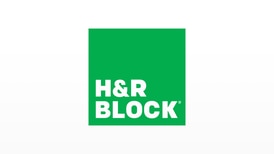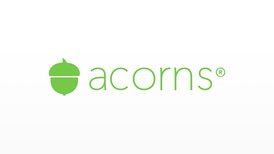
Overall Ranking
5/5
Overview
4.5/5
5/5
5/5
5/5
Here’s a new concept. Lend money to yourself, build your credit, save money and earn interest all at the same time. We’ll tell you why this is better than a secured credit card, better than getting a co-signed loan and better than a prepaid card in our Self review.
Editor's Note
You can trust the integrity of our balanced, independent financial advice. We may, however, receive compensation from the issuers of some products mentioned in this article. Opinions are the author's alone. This content has not been provided by, reviewed, approved or endorsed by any advertiser, unless otherwise noted below.
Have you been unable to get a credit card or a loan because of bad credit, or no credit? Credit builder loans are a way to get around that problem. You make a deposit into a savings account, that acts as security for a credit card for the same amount. You use it just like a regular credit card. And when you have a credit balance, you make monthly payments. Those payments are reported to the credit bureaus, helping you to either build or improve your credit score. But what if you don’t have the money to deposit into a savings account to create the credit builder? That’s where Self (formerly Self Lender) comes into the picture. They’re a different kind of credit builder program. Instead of making a security deposit, they set up a loan program in which the payments go into a certificate of deposit.
Not only do you build or improve your credit rating, but you’ll also have a fully funded certificate of deposit at the end of the program.
About Self
Self helps customers build or improve on their credit score. The company was founded in 2014, and is based in Austin, Texas. The company is partnered with Sunrise Banks, N.A., a Minnesota based bank founded in 1962, and Lead Bank, a Missouri based bank reorganized in 2010, but in business for more than 80 years.
Self has set up and serviced credit builder accounts for more than 120,000 people as of June, 2018. That’s a lot of accounts in just four years.
It works in a very different way from other credit builder type programs, in that it doesn’t require you to put up any type of security deposit.
In a real way, it works by setting up a loan which you effectively pay to yourself. After making the payments, the money is all yours.
The company is offering its program to consumers in all 50 states.
The service is available for individuals looking to build their credit, and not for those looking to build business credit.
Self is rated “B” (on a scale of A+ to F) by the Better Business Bureau, and has been accredited since January, 2016.
How Self Works
Unlike typical credit builder loans, where you have to make a security deposit–usually into a savings account–Self sets you up to fund a certificate of deposit (CD). The CD has a term of either 12 months or 24 months. You can choose the amount of money for the CD from among four different amounts.
The CD is held in your name at either Sunrise Banks, N.A., or Lead Bank, and is fully insured by the FDIC. Once the CD has been opened, the certificate is “locked” and not available for withdrawal until the loan is fully paid.
You will make monthly payments, which will gradually build toward final CD balance. At the end of the loan/CD term, the CD is available for withdrawal. In the meantime, all three major credit bureaus receive reports on your payment history.
The process works like this:

As you see from the screenshot above, Self gives you a choice of four loan/CD amounts. You can choose $525, $545, $1,000, or $1,700. Terms are 12 or 24 months, depending on the amount.
You will make monthly payments, ranging from $25 to $150. Once the loan is paid, the CD will be yours, including interest.
As you can see from the bottom half of the screen shot, you will pay a total of $609 over 24 months to get a CD of $525 plus interest. That means you will pay a total of $84 in interest and the activation costs. That will produce an APR of 14.92%, which is comparable to the lower end interest rate range on most credit cards.
Self Dashboard
Users manage the entire process from the Self dashboard. There you can make monthly payments, track your credit history, and even monitor your “Savings Progress”. This is the approximate value of your account if you were to close it out on any given day.
The Savings Progress formula works as follows:
- CD Principal (no interest),
- minus the remaining loan principal,
- minus loan interest accrued to date,
- minus outstanding fees (if applicable),
- minus a CD early withdrawal fee, if terminated early
Of course, this formula is purely theoretical, since you’re not able to withdraw the funds from the CD early.
CD Withdrawal
You will earn interest on the CD throughout the term, and the entire certificate balance will be released to you upon completion of the loan payments and the maturity of the CD. Once the CD matures, you can choose to have the funds paid out. You will typically receive them within 10 to 14 business days after your request.
There is one major negative with the program: you cannot temporarily suspend your account. Since it is a credit builder account, if you’re unable to make a payment, it will be reported late to the credit bureaus. Late payments are reported if they are more than 30 days past due.
However, the Self credit builder program enables you to accomplish two important goals:
- Build (or improve) your credit rating with all three credit bureaus, and
- Build savings in the CD
Self Features and Benefits
Income Requirement
Self does not have an income requirement to open an account.
Credit Eligibility
You will not be denied a credit builder account if you have either poor credit or no credit. Eligibility for a Self credit builder account is determined through the ChexSystems database of past retail banking history. Self’s bank partners use ChexSystems to determine your eligibility. This system functions as something of a credit report monitoring of your history of banking relationships.
Credit Score
In general, Self reports that it will take at least six months of on-time payments to establish a FICO score. They also caution that if you already have a credit score, it may drop slightly upon taking the credit builder loan, since it will represent a new and unproven obligation.
Self reports customers with an $1,100 credit builder account in good standing have experienced an average credit score increase of 45 points within the first six months. They also report subprime customers experience a credit score increase of 20 to 25 points over the life of the loan.
Your credit score will be available on the Self dashboard.
Making Monthly Payments
You link your bank account to your Self account, and you can either make one-time payments each month, or set up automatic payments.
Account Beneficiary
When you open a credit builder account with Self you can designate a beneficiary for any funds paid into your account.
Early Repayment
You are free to pay back your credit builder account at any time. There are no extra fees or penalties for doing so. Once you do, you will receive the proceeds of the CD, plus accrued interest. However, the bank holding the CD will charge an early withdrawal penalty.
Self recommends against early repayment, since the primary purpose of the credit builder program is to build or improve your credit score. That should happen when the full payment term is complete.
Self Blog
The site offers a blog that deals with credit and personal finance topics, like budgeting, credit cards, debt, financial health, student loans, auto loans, mortgages and more.
Self Referral Program
If you refer a friend, you’ll earn $10 when they complete their first successful credit builder account payment.
Why Self Works Better than a Secured Card, Co-signed Loan or Prepaid Card
Some people who have either bad credit or no credit rely on other types of cards to build credit. One is a secured credit card. This type of arrangement will do the same thing Self will do, reporting monthly payments to all three credit bureaus. In the meantime, you could use the secured card the same way you would a regular credit card.
The disadvantage with a secured card is that you have to fund a savings account as security. If you don’t have the cash, you won’t be able to get the card. And you won’t have access to those funds until either your credit line is paid, or the bank releases the security lien on the account.
The one advantage a secured card has over a Self account is that the card can be used as a credit card. But you’ll also pay interest on that card, and it can be higher than the APR charged on the various Self plans.
Still another way to build credit is getting a loan with a co-signer. This will result in the lower interest rate and better terms. But if you don’t have a cosigner with good credit willing to cosign for you, this obviously won’t work. In addition, if you make any late payments, or default on the loan, it will affect your co-signer’s credit and he or she will then be responsible for paying the remaining balance of the loan. That could ruin an otherwise good friendship, or even a family relationship.
Finally, some people with no credit or bad credit try to get by with prepaid cards. While these can function like credit cards, they don’t help to build your credit history. Also, much like secured cards, you can’t spend any more than the amount you add to the card.
Self Pricing
Application fee: None required.
Activation fee: Between $9 and $15, depending on the loan/CD amount you take.
Interest rate/APR: Ranges from 12.03% to 15.65%.
Late payments: You have a 15-day grace period on monthly payments. After the grace period, the late fee is equal to 5% of the scheduled monthly payment.
The late fee schedule is as follows:
- $1.25 late fee for the $525 credit builder account
- $2.40 late fee for the $545 credit builder account
- $4.45 late fee for the $1,000 credit builder account
- $7.50 late fee for the $1,700 credit builder account
How to Open a Self Account
The application process takes less than five minutes.
To open an account with Self you’ll need the following:
- A bank account or debit card or prepaid card
- Email address
- Phone number
- Social Security number
- Be a valid permanent U.S. resident with a U.S. physical address
- Be at least 18 years of age
They recommend beginning the process with a linked bank account for electronic monthly payment purposes. If you use a debit card, there will be a convenience fee of $0.30, plus 2.99% of amount of the payment.
Self Pros and Cons
Build or improve your credit rating
Build savings in a CD
Choose from 4 loan/CD amounts
Not available for withdrawal until loan is paid in full
You cannot temporarily suspend your account
May be subject to early withdrawal penalties
Should You Sign Up with Self if You Want to Build Credit?
Self is a perfect credit builder plan for someone who either doesn’t have the cash to pledge for a secured credit card, or a qualified and willing co-signer to cosign a loan.
And even though there is an activation fee and an APR, at the end of the 12 or 24 month loan/CD term, you’ll have ownership of the fully funded CD. Meanwhile, all three major credit bureaus–Experian, TransUnion and Equifax–receive your payment reports, building or improving your credit score.
In a real way, Self helps you to both build your credit rating and your savings. And since those are two financial situations that often accompany each other, Self will enable you to get control of both at the same time.
The major drawback with Self is that once you start the program, you don’t have an option to withdraw–unless you’re able to fully payoff/fund the loan/CD. Otherwise you’ll need to continue making monthly payments until the plan is complete in 12 or 24 months. For that reason, it may be best to go with a 12-month plan, even though the activation fee and APR are a little bit higher.
If you’d like more information, or you’d like to sign up for the service, check out the Self website.
Self Disclosure:
Self Financial compensates us when you sign up for Self Financial using the links provided.
All Credit Builder Accounts made by Lead Bank, Member FDIC, Equal Housing Lender, Sunrise Banks, N.A. Member FDIC, Equal Housing Lender or Atlantic Capital Bank, N.A. Member FDIC, Equal Housing Lender. Subject to ID Verification. Individual borrowers must be a U.S. Citizen or permanent resident and at least 18 years old. Valid bank account and Social Security Number are required. All loans are subject to ID verification and consumer report review and approval. Results are not guaranteed. Improvement in your credit score is dependent on your specific situation and financial behavior. Failure to make monthly minimum payments by the payment due date each month may result in delinquent payment reporting to credit bureaus which may negatively impact your credit score. This product will not remove negative credit history from your credit report. All loans subject to approval. All Certificates of Deposit (CD) are deposited in Lead Banks, Member FDIC, Sunrise Banks, N.A., Member FDIC or Atlantic Capital Bank, N.A., Member FDIC.




